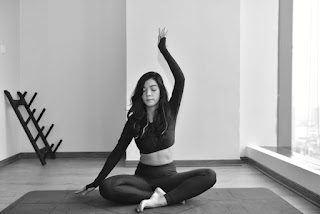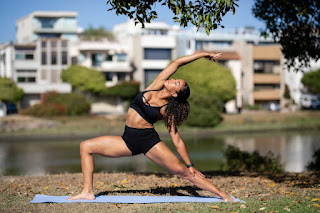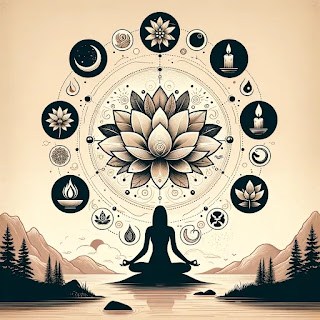Yoga for Health and Wellness: A Complete Guide to Body, Mind, and Spirit
Yoga transcends mere physical exercise, offering a holistic approach to well-being that harmonizes the body, mind, and spirit. Practicing yoga for health and wellness can lead to profound physical, mental, and emotional benefits. From improving flexibility, balance, and strength to enhancing mental clarity and emotional resilience, yoga provides tools to live a more balanced and fulfilling life.
This guide explores yoga’s philosophical roots, different styles, personal practice tips, and accessibility options, helping you embark on your journey toward holistic wellness.

The Benefits of Yoga for Health and Wellness
Practicing yoga for health and wellness provides comprehensive benefits that extend far beyond the mat:
- Physical Health: Yoga enhances flexibility, builds strength, improves posture, and supports joint health. Poses like Mountain Pose, Downward-Facing Dog, and Child’s Pose offer a full-body workout suitable for beginners and advanced practitioners alike.
- Mental Clarity: Breathwork techniques, such as pranayama and deep breathing, help calm the nervous system, reduce stress, and improve focus.
- Emotional Balance: Meditation and mindfulness practices in yoga reduce anxiety, elevate mood, and cultivate emotional resilience.
- Overall Wellness: Regular practice promotes mind-body awareness, helping you make healthier lifestyle choices.
Key Insight: Integrating yoga into your daily routine strengthens the mind-body connection, which is essential for lasting wellness.

Yoga’s Philosophical Roots
At its core, yoga is more than exercise—it’s a way of life guided by ancient philosophy. The Yoga Sutras of Patanjali introduce ethical principles known as Yamas and Niyamas, including:
- Ahimsa (Non-Harming): Promoting compassion toward self and others.
- Satya (Truthfulness): Encouraging honesty in thought, speech, and action.
- Aparigraha (Non-Attachment): Learning to let go of unnecessary material or emotional burdens.
Applying these principles in daily life elevates your practice, transforming yoga from a series of poses into a journey of personal growth and self-discovery.

Exploring Yoga Styles for Health and Wellness
There’s a yoga style for every body, mind, and intention. Here’s a breakdown of popular styles:
- Karma Yoga: Focuses on selfless service and compassionate action.
- Bhakti Yoga: Cultivates devotion and love through chanting, prayer, and community practices.
- Jnana Yoga: Emphasizes knowledge, self-inquiry, and meditation.
- Tantra Yoga: Connects body and spirit through breath, energy work, and meditation.
- Ashtanga Yoga: A physically demanding practice for building strength and endurance.
- Vinyasa Yoga: Dynamic flows that link breath with movement, promoting cardiovascular health.
- Hatha Yoga: Gentle and foundational, perfect for beginners.
- Iyengar Yoga: Focuses on alignment, precision, and the use of props.
- Kundalini Yoga: Awakens energy through breathwork, meditation, and movement.
- Yin Yoga: Passive stretches that encourage relaxation and joint flexibility.
- Restorative Yoga: Deeply relaxing poses using props for stress relief.
- Prenatal Yoga: Supports moms-to-be with safe, gentle practices.
- Anusara Yoga: Combines alignment with heart-centered philosophy.
- Jivamukti Yoga: Blends vigorous physical practice with ethical and spiritual teachings.
Tip: Experiment with different styles to discover which aligns best with your wellness goals.
Starting Your Personal Yoga Practice
To maximize the benefits of yoga for health and wellness, establish a consistent personal practice:
- Set Up Your Space: Use a yoga mat, blocks, or straps in a quiet area where you feel comfortable.
- Start Small: Begin with beginner poses like Mountain Pose, Child’s Pose, or Downward-Facing Dog.
- Incorporate Breathwork: Practice pranayama or mindful breathing to enhance relaxation and focus.
- Mix Physical and Meditative Practice: Balance asana with meditation to strengthen body and mind simultaneously.
- Track Progress: Keep a yoga journal to note improvements in flexibility, strength, and mindfulness.
- Adjust Daily: Some days may call for vigorous flows, while others benefit from restorative practices.
Key Insight: Yoga is adaptable. Your practice should meet you where you are physically, mentally, and emotionally.

Embracing the Yoga Lifestyle
Yoga is more than a practice—it’s a lifestyle that integrates physical fitness, mental clarity, and spiritual growth. By exploring different styles and philosophies, you can tailor your practice to your personal wellness goals.
Whether your aim is to reduce stress, improve flexibility, or deepen self-awareness, yoga for health and wellness offers a path for everyone. Start today with an open heart, and let yoga guide you to a healthier, more balanced life.




